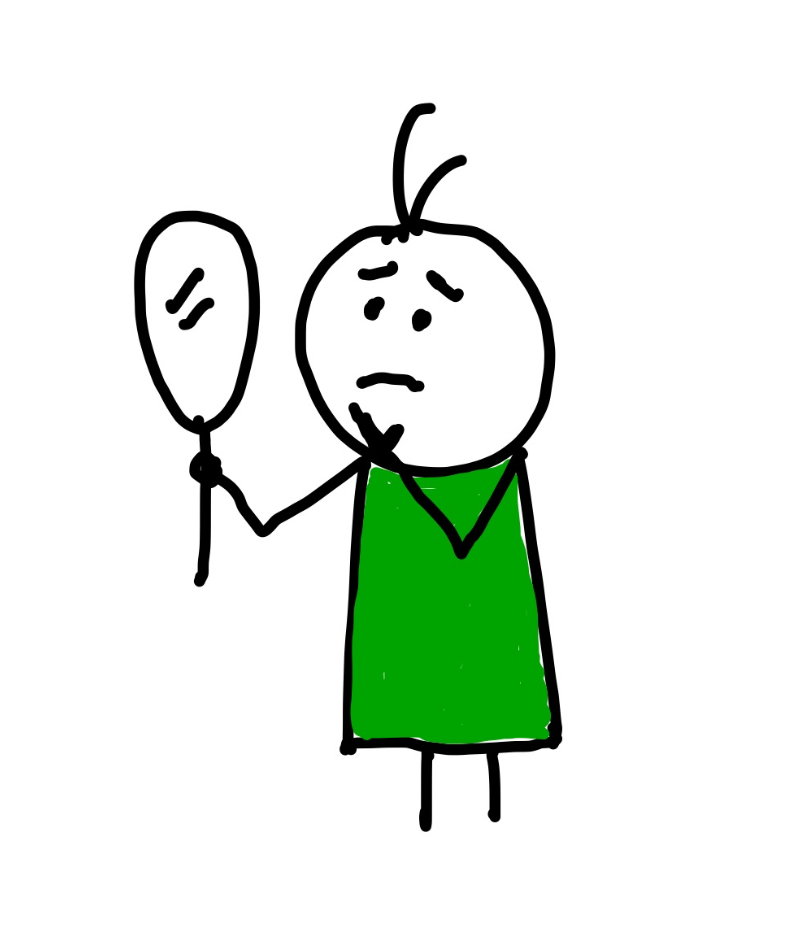Taking a Mirror Moment: Teaching Kids the Power of the Pause
There’s a moment—a tiny space—between what triggers us and how we choose to react. It might last a second or two. But in that space lies one of the greatest superpowers we can teach our children: the Mirror Moment.
Let’s call it what it is—a sacred pause.
A chance to stop, breathe, and choose who we want to be.
“1, 2, 3… Who Do You Want to Be?”
We all know that emotions can feel big and fast. Especially in the heat of the moment, it’s easy to blurt something out, slam a door, or make a snap decision. But when we teach our kids to take a Mirror Moment, we’re giving them a tool that activates their parasympathetic nervous system—the part of the brain responsible for calming down. This pause actually helps lower cortisol (the stress hormone), bringing clarity to the moment.
Instead of reacting impulsively, a child can pause and ask:
“Who do I want to be right now?”
Do I want to be the person who yells, blames, or storms off?
Or...
Do I want to be someone who thinks before speaking, who keeps calm, who responds with kindness?
What Is a Mirror Moment?
A Mirror Moment is the act of looking inward—imagining you’re holding up a mirror to yourself in the middle of a challenging situation.
It’s the mental space where your child can ask:
“How do I want to be seen right now?”
“What kind of person do I want to show up as?”
“What will I think of myself later if I choose this action?”
It’s not about being perfect. It’s about being intentional.
Why Mirror Moments Matter
Mirror Moments teach kids that:
They are not their emotions. Emotions pass. Choices stay.
They always have a choice. Even when they feel out of control.
They can shape who they become. Every small decision is a chance to grow.
And here's the big truth:
You can’t control what happens to you. You can only control how you respond.
We can’t always stop difficult things from happening, but we can decide what to do with those moments.
As adults, when we model this kind of self-awareness, our children learn to do the same.
Teaching Mirror Moments at Home
You can introduce this idea with a fun phrase:
“1, 2, 3… Who do you want to be?”
Even pretend to hold up an invisible mirror when your child is about to make a choice. Make it playful but meaningful.
What we believe about ourselves matters. Mirror Moments help shape that belief.
And remember:
“It’s what you say, what you mean, what they hear—and what they make it mean.”
Teaching your child to pause and think also gives them the chance to choose the meaning they assign to what’s happening around them.
Learning to pause before reacting and choosing an intentional response will make them feel good about themselves later when they reflect back on how they acted.
We have all been in situations when we regret how we acted. But we have also been in situations where we can look back and say, “I handled that situation well.” It always feels much better when we can be proud of our actions. Those are the feelings we want our children to experience.
Once they learn that the quick, knee-jerk reactions often lead to feelings of regret, they will be more likely to pause and react with purpose. With practice, the Mirror Moment will become part of their automatic response to a situation.
Help them practice using these Mirror Moment Reflection Cards. There are cards with example scenarios and then blank cards to make your own. You can also download and print a Mirror Moment Prompt Page for quick reminders on how to take a mirror moment.
Real-Life Mirror Moment Examples for Kids
1. A Sibling Takes Their Toy
Trigger: “That’s mine! Give it back!”
Mirror Moment: Take a breath. Say to yourself, “1, 2, 3… Who do I want to be?” Ask, “Do I want to yell or solve the problem?”
Empowered Response: “I was playing with that. Can I have it back when you’re done?”
2. A Friend Says Something Unkind
Trigger: Hurt feelings, maybe even tears
Mirror Moment: “1, 2, 3… Who do I want to be?” “Do I want to say something mean back, or stand up for myself calmly?”
Empowered Response: “That hurt my feelings. I’d like to be treated with kindness.”
3. They Mess Up on a Test
Trigger: Frustration, shame, wanting to give up
Mirror Moment: “1, 2, 3… Who do I want to be?” “Do I want to quit or keep trying?”
Empowered Response: “I made a mistake, but I can learn from it. I’ll try again.”
4. They’re Tempted to Lie
Trigger: Fear of getting in trouble
Mirror Moment: “1, 2, 3… Who do I want to be?” “Do I want to be seen as trustworthy or dishonest?”
Empowered Response: “I made a mistake, but I want to be honest about it.”
Final Thought: Response Shapes Reality
Taking 100% responsibility for how we respond to life is one of the most empowering lessons we can give our children.
Because in the end:
It’s not the trigger that defines the moment—it’s the response.
The next time your child faces a challenging emotion or situation, simply ask:
“What would your best self do right now?”
“Can we take a Mirror Moment together?”


